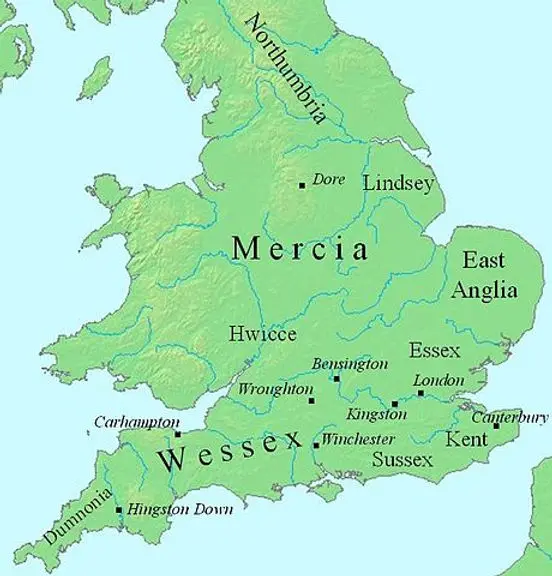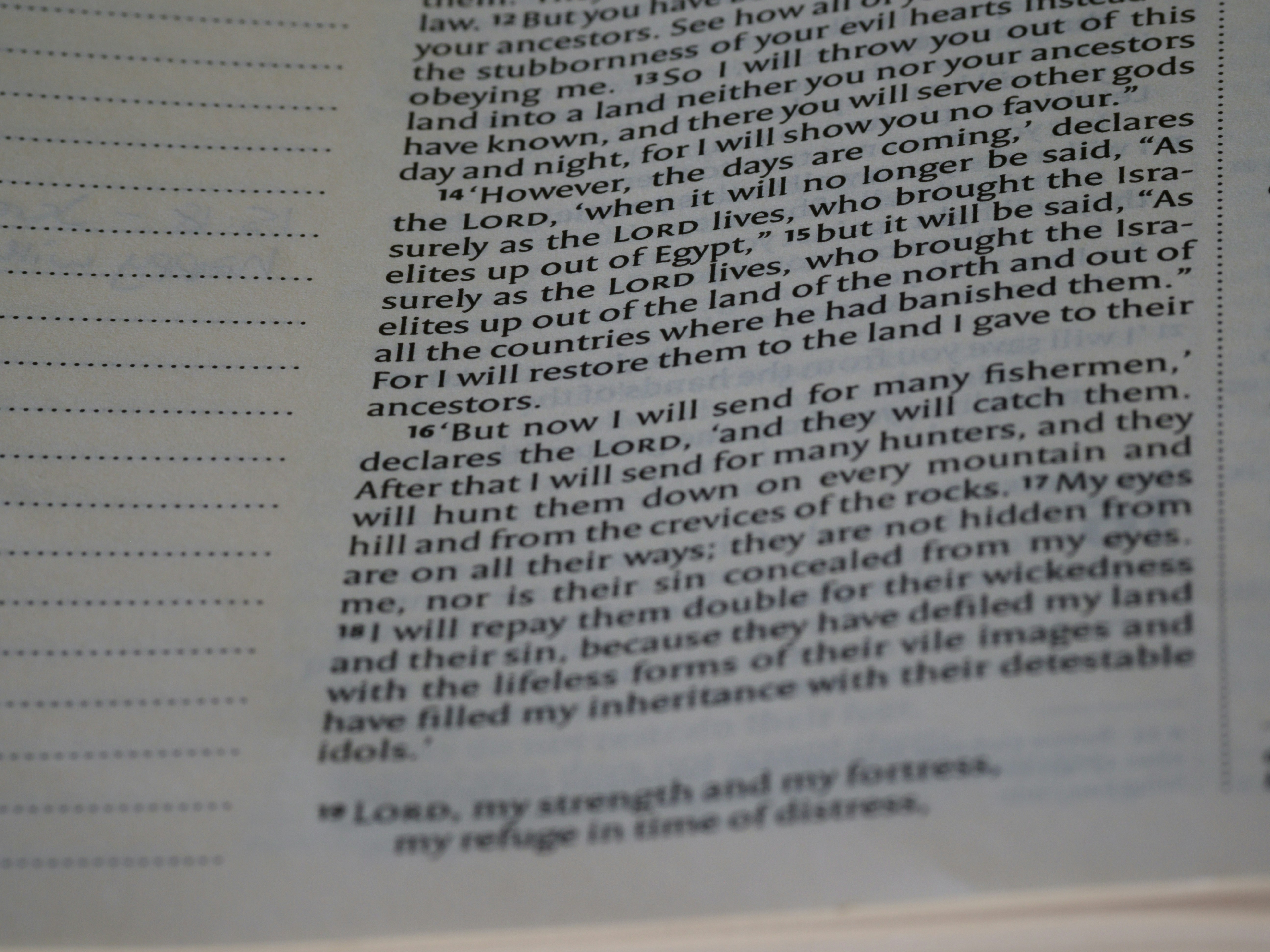Anglo-Saxon Kings Having Sex with Nuns? The Controversial History of the Lost Kingdom of Mercia

Lost Kingdom of Mercia
Introduction to Mercia
Mercia, one of the prominent kingdoms that formed part of Anglo-Saxon England, played a crucial role in the historical landscape of the early medieval period. Situated centrally within what is now England, Mercia extended over a vast area that included present-day Staffordshire, Derbyshire, and parts of Northamptonshire and Warwickshire. From the 6th century until its decline in the 9th century, Mercia emerged as a powerful kingdom, characterized by its rich cultural heritage, political intrigue, and notable military success.
The establishment of Mercia is generally placed within the 6th century, when various Anglo-Saxon tribes moved into the territory, forming a unified kingdom. Under the leadership of kings such as Penda and Offa, Mercia witnessed a significant expansion of its influence, both politically and militarily. King Penda is particularly remembered for his fierce resistance against the spread of Christianity, as well as his role in multiple conflicts, ultimately marking Mercia as a formidable force in early medieval England.
During the reign of Offa, who ruled from approximately 757 to 796 AD, Mercia reached its zenith. Offa’s reign is noted for the establishment of Offa’s Dyke, a significant earthwork boundary demarcating the territory between Mercia and Wales. Furthermore, Offa’s dealings with the papacy, including the introduction of the Offa coinage, reflect the kingdom’s robust economic and diplomatic engagement during this period. Notably, Mercia was characterized by a blend of pagan and Christian traditions, coexisting amid the tensions of faith and governance.
This introduction to Mercia sets the stage for exploring the kingdom’s rulers, the dynamics of power, and the cultural milieu that influenced its historical trajectory. As we delve deeper into the narratives surrounding the leaders of Mercia, a clearer picture of this intriguing kingdom unfolds, shedding light on its enduring legacy within the Anglo-Saxon era.
The Anglo-Saxon Period: A Brief Overview
The Anglo-Saxon period, spanning from approximately the 5th century to the Norman Conquest in 1066, marked a significant era in English history. This period began with the arrival of the Anglo-Saxons, a group of tribes, including the Angles, Saxons, and Jutes, who migrated to England following the decline of Roman rule. Initially, these tribes were pagan, practicing a polytheistic belief system that centered around various gods and goddesses, reflecting their connection to nature and the world around them.
The social structure of the Anglo-Saxon period was hierarchical, with kings ruling over tribes, powerful nobility, and a class of freemen. Below them were serfs and slaves, who worked the lands of the more affluent classes. This stratified society played a crucial role in shaping the political landscape, as power was often contested between different kingdoms and their rulers. The kingdoms of Mercia, Northumbria, and Wessex were among the most prominent, each vying for supremacy in the region.
One of the most significant transformations during this period was the gradual conversion from paganism to Christianity. Beginning in the late 6th century, missionaries, such as St. Augustine, were instrumental in spreading the Christian faith throughout England. This conversion not only altered religious practices but also influenced social and political dynamics. The church emerged as a powerful institution, aligning itself with various rulers who sought legitimacy and support through ecclesiastical endorsement.
Moreover, the intertwining of religious authority and political power became increasingly evident as Anglo-Saxon kings often relied on church leaders for counsel and legitimacy. This relationship between church and state was pivotal in shaping the governance and societal norms of the time, contributing to the rich tapestry of Anglo-Saxon history. Understanding these foundational aspects is essential to appreciate the complexities of interactions that occurred within this period, setting the stage for future events in the Kingdom of Mercia.
Kings of Mercia: Power Dynamics and Rulership
The Kingdom of Mercia, flourishing from the 6th to the 9th century, was one of the most significant Anglo-Saxon kingdoms in early medieval England. Its kings, particularly notable figures like King Penda and King Offa, exemplified the intricate dynamics of power, loyalty, and political maneuvering. King Penda, reigning from 626 to 655, was known for his military prowess and as a fierce opponent of Christian expansion, rooted in his staunch pagan beliefs. Under Penda, Mercia expanded its territorial reach through a series of invasions, yet his reign was marked by continual power struggles both within and beyond his kingdom.
Following Penda’s death, the influence of the church began to assert itself more firmly in the ruling dynamics of Mercia. King Offa, who ruled from 757 to 796, was a pivotal figure representing the shift towards a more centralized authority intertwined with Christian leadership. Offa’s reign is particularly notable for his ambitious administrative reforms, including the design of the famous Offa’s Dyke, a defensive structure marking the boundary between Mercia and Wales. His policies facilitated economic prosperity and political stability, fostering a relationship with the church that enhanced the moral legitimacy of his rule.
Moreover, royal power in Mercia was not merely a matter of military strength; rather, it involved complex relationships with ecclesiastical leaders and the populace. The church significantly influenced the kings’ decisions, providing both counsel and divine endorsement. This intertwining of politics and religion also paved the way for personal scandals that pervaded the history of Mercia. From allegations of illicit relationships to potential favoritism towards the church, the actions of Mercian kings often sparked debates about the moral implications of their rule. The balance between sovereignty and sanctity continues to intrigue historians and enthusiasts of Anglo-Saxon history, illustrating the multifaceted nature of leadership in Mercia.
Nuns in Anglo-Saxon Society: Roles and Expectations
Nuns played a significant role in Anglo-Saxon society, embodying the intersection of religious devotion and societal norms. Typically, nuns lived in convents and were dedicated to a life of prayer, service, and community. This commitment to spirituality often involved rigorous daily routines centered around the liturgical calendar, encompassing periods of prayer, meditation, and communal worship, thereby fulfilling their religious obligations. The influence of these religious women extended beyond the walls of their cloisters, as they often engaged in charitable activities, providing care for the poor and aiding in local education.
The societal view of women, particularly those in religious positions, was complex during this period. Although women were often seen as subordinate, the role of a nun offered them a certain degree of autonomy and respect. Nuns could possess property, influence local politics, and act as advisors in matters that affected their communities. Furthermore, high-status nuns sometimes belonged to influential families, which allowed them to participate actively in governance and decision-making. This elevated status, however, did not exempt them from the overarching patriarchal structure that dominated Anglo-Saxon society.
Yet, the intertwining of religion and sexuality created tensions in the lives of these women. The commitment to celibacy was a critical aspect of a nun’s life, designed to ensure their purity and devotion to God. Nevertheless, the historical narrative surrounding Anglo-Saxon kings often reveals sporadic instances of sexual transgressions. This complicated dynamic between the piety of nuns and the desires of powerful men would eventually lead to intriguing historical discourse. Such complexities highlight the need to further investigate the expectations placed upon nuns and the resultant implications within the social fabric of Anglo-Saxon England.
Historical Accounts of Relationships Between Kings and Nuns
The complex interplay between religion and politics in Anglo-Saxon England often led to intriguing narratives concerning the relationships between kings and nuns. Several historical accounts suggest that these interactions were not merely matters of governance, but also included personal and potentially illicit connections. Chronicles such as the “Anglo-Saxon Chronicle” and writings from venerable historians, like Bede, provide a backdrop for these occurrences. They depict how kings may have sought alliances through the church, which could sometimes blur the lines regarding the sacred space of a convent.
One notable figure in this discourse is King Offa of Mercia, whose reign is punctuated by a range of documented associations with religious institutions. Historical speculation arises from writings that hint at the presence of nuns in royal courts, possibly fostering relationships that could have ranged from patronage to more intimate encounters. Such accounts raise questions about the integrity of the religious institutions during this period, revealing a tension between the ecclesiastical vocation and temporal power, as kings navigated their legacies and birthright through strategic engagements with prominent religious leaders.
The history and the credibility of these accounts are often subjects of debate among historians. While some documents have been less reliable, others showcase an undeniable pattern of kings using their influence to draw connections with religious figures. The existence of ambiguous language in some chronicles has led to interpretations that suggest that these relationships extended beyond platonic interactions. Controversially, this invites modern historians to analyze whether these ties were consensual engagements or symptomatic of the coercive power held by kings. Thus, the blend of politics and possible intimacy between Anglo-Saxon kings and nuns is an enduring topic of investigation, reflecting broader questions about authority, piety, and moral standards of the time.
The Impact of Monastic Life on Politics
In the fertile landscape of early medieval England, the kingdom of Mercia emerged as a significant political entity, characterized by its complex power dynamics. Central to this realm was the interdependence between the monarchy and monastic institutions. Monasteries were not merely religious sanctuaries; they played a crucial role in shaping political decisions. The symbiotic relationship between kings and monasteries offered various logistical and social advantages that influenced governance.
The alliance between Mercian kings and monastic communities often catered to mutual interests. Monasteries acted as centers of learning and culture, providing educated clerics who could serve as advisors and administrators in the royal court. In Mercia, instances can be traced where ecclesiastical leaders wielded considerable influence over political matters, guiding decisions that affected not just local governance but also the broader dynamics of power within the kingdom. The clergy’s counsel was sought after on various occasions, reinforcing the idea that monastic life and royal authority were interlinked.
Moreover, personal relationships between monarchs and religious figures frequently played a vital role in cementing alliances. Kings would often grant land and wealth to monasteries to secure loyalty and support from the clergy. Such actions were strategically advantageous as they elicited public favor, bolstered the king’s reputation, and ensured a workforce committed to the kingdom’s stability. This intricate web of alliances created an environment where monastic influence could shape political actions directly or indirectly, impacting everything from legislation to the appointment of key roles within the kingdom.
Furthermore, the political implications of monastic life were evident in moments of crisis, when negotiating peace or war often involved religious intermediaries. Such instances highlight the essential role that monastic communities played in not only preserving religious ideals but also shaping the political landscape of the Mercian kingdom. Thus, the influence of monasticism extended far beyond spiritual realms, molding the very fabric of Mercia’s governance and politics.
Attempts to Suppress Scandal: Church and State Relations
The relationship between church and state during the Anglo-Saxon period was crucial in shaping societal norms and governing morality. Church authorities were vested with significant power, not only in spiritual matters but also in enforcing moral expectations upon rulers. This influence extended particularly to the realm of scandal involving kings and nuns, where the intersection of ecclesiastical law and royal duty was closely monitored.
In the context of the alleged transgressions involving kings and nuns, church leaders endeavored to maintain the sanctity of religious institutions by suppressing any narratives that could tarnish their reputation. The ecclesiastical law of the time outlined strict moral codes, particularly regarding sexual conduct, and any deviation by a king was viewed as a severe breach of duty. The Church, thus, became a guardian of morality, holding monarchs accountable for their actions, especially concerning interactions with religious women.
Moreover, the moral expectations imposed on rulers were not merely societal but were rooted in theological principles. Kings were considered divinely appointed figures, and their actions were thought to have both earthly and heavenly ramifications. Thus, a scandal involving a king and nuns risked not only the king’s temporal authority but also the favor of God and the stability of the kingdom. This made it imperative for ecclesiastical authorities to act swiftly in the face of such allegations, usually opting for suppression over exposure.
Consequences for rulers who failed to meet these moral standards could be severe. Historical narratives sometimes reflect a bias that exiled or diminished the legitimacy of those who were found culpable of scandalous behavior. This intertwined relationship between church and state established a precedent for governing not only physical territories but also the moral landscape of the kingdom, shaping public perception and the narrative of history itself.
Perceptions and Interpretations in Later Histories
The relationships between Anglo-Saxon kings and nuns have been a subject of fascination and speculation in later historical narratives. Scholars and writers from subsequent eras have often romanticized or sensationalized accounts of these connections, infusing them with contemporary values and interests that may not accurately reflect the past. This tendency to reinterpret historical events through a modern lens has significantly shaped our understanding of figures like the kings of Mercia and their interactions with religious women.
Many chroniclers from later periods imposed their moral frameworks on the stories of these kings, creating a narrative that emphasized themes of seduction, power, and transgression. This romanticization often obscures the complexities of the original relationships, which were likely more nuanced and contextual. The accounts of kings engaging with nuns were sometimes framed as acts of piety, while at other times, they were depicted as violations of sacred bonds. The duality of these narratives reflects the societal values of the periods in which they were written, often projecting modern attitudes toward sexuality and religious authority back onto the Anglo-Saxon era.
Moreover, the dramatic embellishments in these retellings can be traced to a variety of cultural influences, including ecclesiastical agendas seeking to reinforce moral teachings or societal norms. As a result, the perception of Anglo-Saxon history has been shaped not only by the events themselves but also by the intentions and biases of later historians. The sensationalism surrounding the rumored relationships has, in turn, contributed to ongoing debates among scholars regarding the accuracy of these portrayals. The interplay of fact and fiction serves as a reminder of the dynamic nature of history, where narratives evolve and adapt to the changing values and concerns of each generation.
Conclusion: Reflections on Mercian Legacy
The history of Mercia, one of the significant kingdoms of Anglo-Saxon England, presents a fascinating tapestry of political, social, and religious complexities. The narratives surrounding its rulers, particularly the enigmatic stories related to their interactions with religious institutions, showcase the intertwined nature of monarchy and ecclesiastical authority in this era. This peculiar intersection raises numerous questions about the moral and ethical standards that governed such relationships during the Anglo-Saxon period.
Among the most intriguing aspects of Mercian history is the role of its kings in relation to monastic communities, including the rumored romantic liaisons with nuns. These tales, while often sensationalized in modern interpretations, provide a lens through which we can explore the broader societal norms of the time. The authority wielded by these rulers and the revered status of the church created a complicated dynamic, where power, influence, and piety were never clearly delineated. Such complexities render Mercian history not merely a record of past events but a vivid narrative that continues to engage both scholars and history enthusiasts alike.
Furthermore, the legacy of Mercia extends beyond its rulers and ecclesiastical ties. It encompasses the cultural and linguistic contributions that shaped the development of England as a whole. The kingdom’s rich heritage is reflected in the surviving artifacts, literature, and place names that continue to resonate within the contemporary landscape. The intellectual pursuit of understanding the intricate relations of power, faith, and society in Mercia sheds light on the foundational elements of modern governance and community life.
As historians and the interested public delve deeper into this strange yet captivating history, the quest for understanding the Mercian legacy endures, unlocking new interpretations and insights that enrich our appreciation of this pivotal period in British history.












Leave a Reply
You must be logged in to post a comment.